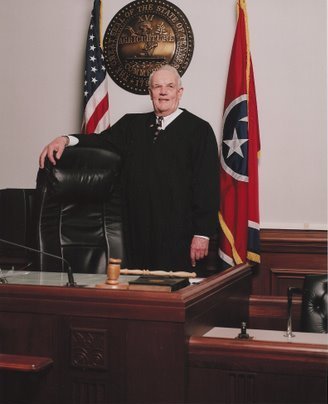Our Mission
We support the State of Tennessee’s criminal justice system by addressing offender substance use and criminality in a comprehensive treatment environment. Our goal is to promote positive changes in the behavior of adult offenders, helping them successfully reintegrate into society. Our program offers services and opportunities that are proven to significantly improve the lives of those individuals with a history of maladaptive behavior and substance abuse.
Our Values
Our organization's foundational principles of "Right-Living" form the bedrock of our therapeutic culture and steer our endeavors. They epitomize what has always been and continues to be significant to us, shaping our relentless pursuit of excellence in fulfilling our mission. The committed staff at DC4 serves as fervent embodiments of these values:
· Truth and Honesty
· Personal Accountability
· Learn to Learn
· Responsible Concern for Peers
· Work Ethic
· Community Involvement
· Economic Self-Reliance
“Treatment courts are the single most successful intervention in our nation’s history for leading people living with substance use and mental health disorders out of the justice system and into lives of recovery and stability.”
— National Association of Drug Court Professionals, www.nadcp.org.
Program Goals and Objectives
We strive to meet the following goals:
Promote public safety by reducing recidivism among program participants.
Reduce incarceration of non-violent, chemically dependent offenders by providing intensive alcohol and drug treatment.
Gain community support for recovery and rehabilitation.
Program Goals and Objectives
The Davidson County Residential Recovery Court Program, better known as DC4, is a long-term, clinically managed, high-intensity substance abuse residential therapeutic community (TC) designed for adults with co-occurring and serious substance use disorders. Participants at DC4 have complex needs, including recurrent criminal behavior and a variety of other related cognitive and interpersonal issues that cannot be effectively treated at a less intensive level of care. DC4 provides round-the-clock supervision by mental health professionals and support staff trained to assist individuals dealing with the consequences of chronic substance abuse.
The DC4 therapeutic community uses an evidence-based treatment approach that addresses substance abuse as a whole-person disorder. This holistic approach challenges each participant's harmful thinking and unhealthy behavioral patterns. Through active participation in therapeutic processes like process groups, support groups, and individual counseling, community members learn to recognize and appropriately respond to challenging situations that arise from their daily social interactions or past lifestyle circumstances.
At DC4, recovery is seen as a comprehensive lifestyle change. It is a form of learning that develops within the social context of self-help and mutual assistance. Sustainable recovery and successful community reintegration at DC4 require a commitment to a disciplined, resilient, and prosocial recovery process. Inappropriate behaviors are addressed based on their impact on the community. Community members are encouraged to assess their cognitive-behavioral processes and make accurate positive changes. When new members join, they may struggle to adapt to DC4's principles, leadership, therapeutic methods, and community expectations. However, they learn the importance of patience, tolerance, openness, resilience, and accountability with time and support. Community members realize that change is inevitable and that how they handle change is crucial to their recovery.
To achieve these goals we:
Promote personal responsibility and accountability of participants.
Encourage participation in recovery support groups and ongoing communication with recovery sponsors.
Reduce the number of positive drug screens by providing individual and group treatment by a substance abuse counselor.
Identify criminal thinking behavior.
Provide vocational training and educational classes to assist participants in maintaining full-time employment.
Provide community service work for non-profits and governmental agencies.
Educate the community on DC4’s mission and increase the public’s awareness of the cycle of chemical addiction.
Ready to begin the application process?
Our Vision
Our program is dedicated to reducing offender recidivism and generational shortcomings by providing our participants with the unique opportunity to actively participate in an evidence-based therapeutic community founded on proven recovery-oriented principles.
Our History
The Davidson County Residential Drug Court Program, or DC4, is a residential recovery court program in Nashville, Tennessee. It was established in 1997 by Judge Seth Norman and is well-known for its unique community approach to treatment. The program's success is attributed to its focus on Developing Character During Confinement (DC4). At DC4, residents are fully immersed in a therapeutic community designed to allow participants to engage in specialized treatment within a supervised and structured environment.
DC4 is a state-sponsored residential treatment center that caters to both male and female participants. While many residents come from the Nashville/Davidson County area, DC4 also accepts referrals from courts throughout the state. Currently, Judge Jennifer Smith presides over the Recovery Court Program, which falls under the jurisdiction of Criminal Court Division IV in the 20th Judicial District of Tennessee.
Judge Norman
(April 6, 1934 - September 23, 2023)
Hon. Seth Norman (ret.)
FOUNDER AND FIRST PRESIDING JUDGE OF DC4
Judge Seth Norman served as a Criminal Court Division IV Judge in the 20th Judicial District in Nashville from 1990 until his retirement in 2018. He is considered the father of the state’s recovery court system. Judge Norman established the groundbreaking Davidson County Drug Court (DC4) in 1996. It was one of the first recovery courts in the country. In 1998, the program started the first court-operated residential drug court in the United States. He founded the 13th Judicial District Recovery Court in 2011 and the Morgan County Residential Recovery Court in 2013.
Before his passing, Judge Norman continued to serve by providing technical assistance to the Tennessee Department of Mental Health and Substance Abuse Services (TDMHSAS) recovery courts and their long-term residential recovery court model. Additionally, Judge Norman assisted the National Judicial College, the Tennessee Bar Journal, the Nashville Bar Journal, and TAADAS by writing articles on substance use disorder treatment and criminal justice issues.
Judge Norman and DC4 have been highlighted in various editions of the above-listed publications and the 2004 President’s Drug Control Strategy, Newsweek Magazine, the Wall Street Journal, Tennessean, Nashville Scene, and other local periodicals.



